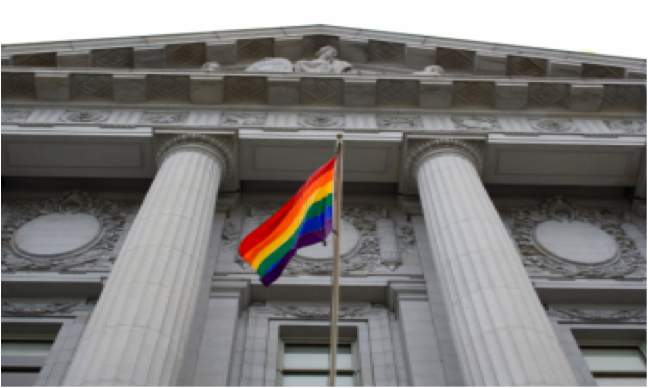Political Micromanaging of College Curriculum and Punishing Colleges for Teaching Books with LGBT Content is an Assault on Academic Freedom
June 9, 2014
Media Contacts:
Michael O’Neil, Communications Director, National Coalition Against Censorship; [email protected], (212) 807 6222 x 107
Victoria Middleton, Executive Director, ACLU of South Carolina; [email protected], (843) 720 1424;
The National Coalition Against Censorship, ACLU of South Carolina and other organizations that defend First Amendment freedoms strongly condemn the recent budget provision adopted by the South Carolina Legislature, which forces two state colleges to spend the exact amounts spent on reading programs for incoming students – $52,000 at the College of Charleston and $17,000 at USC Upstate – to teach the U.S. Constitution, Declaration of Independence and Federalist papers, “including the study of and devotion to American institutions and ideals.” The provision came as a compromise reconciling the House and Senate budget proposals. The House proposal would have cut funding to the schools in order to penalize them for including books containing lesbian, gay, bisexual and transgender themes, while the Senate proposal, which was ultimately accepted, restored the funding but mandated that a sum equivalent to what was spent on the controversial books be spent to teach the founding documents.
The decision to impose a symbolic penalty on the two colleges poses exactly the same concerns as the initially proposed cuts: it represents unwarranted political interference with academic freedom and undermines the integrity of the higher education system in South Carolina.
In a letter to the South Carolina Senate Finance Committee and sent March 18, signed by the National Coalition Against Censorship, the American Booksellers Foundation for Free Expression, the Association of American Publishers, the Comic Book Legal Defense Fund, and the National Council of Teachers of English, in addition to the ACLU of South Carolina, the group stated:
“Penalizing state educational institutions financially simply because members of the legislature disapprove of specific elements of the educational program is educationally unsound and constitutionally suspect and … threatens academic freedom and the quality of education in the state.” This remains the organizations’ concern with the current compromise provision. As the March 18 letter stated further: “it is the right of faculty, based on their disciplinary and pedagogical expertise, to develop curriculum and assign books free of outside political interference by legislators who lack such expertise.”
“The compromise provision, which leverages funding to micromanage curriculum and fill it solely with materials and ideas that please all legislators is a destructive assault on academic freedom,” said NCAC Executive Director Joan Bertin. “The Supreme Court has sent a clear message over decades: lawmakers may not prohibit the expression of ideas simply because they find them to be offensive.”
According to Victoria Middleton, Executive Director of the ACLU of South Carolina, “This kind of political interference with academic freedom violates core democratic values and compromises the quality of higher education in South Carolina. Book banning of this sort violates the spirit of the First Amendment that our officials claim to respect.”
The same provision demands that alternative reading materials be provided to state university students who object due to religious, moral or cultural beliefs and that students are allowed not to attend an otherwise mandatory lecture or other out-of-classroom activity if they find it objectionable. This requirement further demonstrates the Legislature’s failure to understand that a democratic and globally competitive college education must empower students with broad knowledge and transferable skills, as well as prepare them for civic engagement. Such an education requires that students are presented with a wide variety of competing ideas and taught to look at them critically, to listen to others’ arguments, and to present their own.
The governor is expected to sign off on the budget as early as this week. The ACLU-SC and NCAC are working with a broad coalition of academic and free speech organizations nationwide to issue a statement in response.


